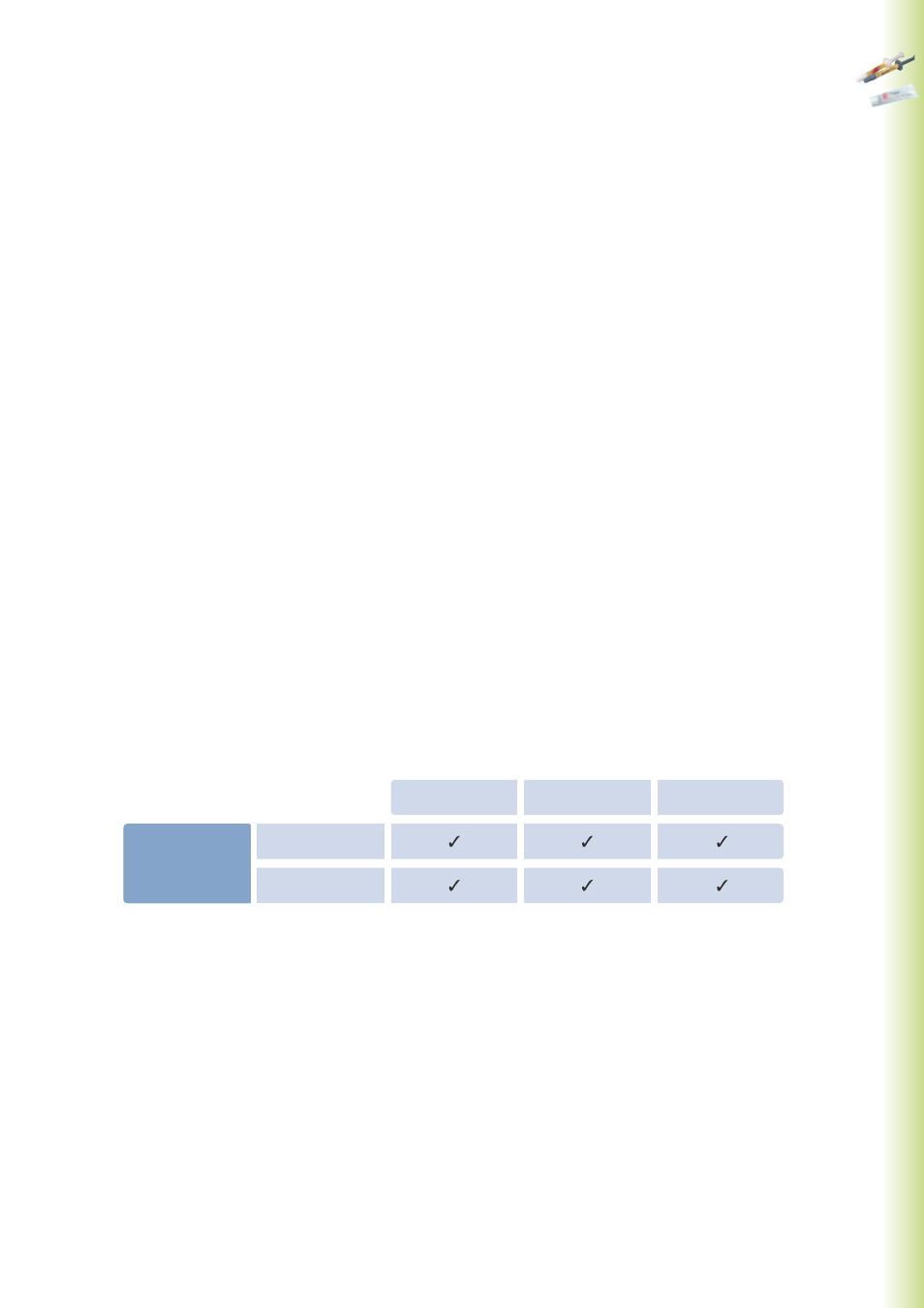E.max, Cad-on, Seating and follow-up care – Ivoclar Vivadent IPS e.max CAD-on User Manual
Page 43

43
Seating
and
Follow-Up
Car
e
e.max
®
CAD-on
Seating and Follow-Up Care
IPS
Possibilities for Cementation
Possibilities for esthetic cementation are decisive for the harmonious shade effect of an all-ceramic restoration.
Depending of the indication, IPS e.max CAD-on restorations can be seated using either adhesive, self-adhesive or conven-
tional cementation.
– For the adhesive cementation of IPS e.max CAD-on restorations, Multilink
®
Automix is ideally suitable.
– SpeedCEM is available for the self-adhesive cementation of IPS e.max CAD-on restorations.
– The glass ionomer cement Vivaglass
®
CEM is recommended for the conventional cementation of IPS e.max CAD-on
restorations.
*
Definition
•
Adhesive cementation
With adhesive cementation, the bond is also created by static friction, but primarily by the chemical and/or micro-
mechanical bond between the luting material and the restoration, as well as between the luting material and the
preparation. Given the chemical and/or micromechanical bond, retentive preparation is not required. Irrespective of the
cementation material, special adhesive systems are used on the preparation to generate the micromechanical bond with
the dentin and/or enamel. Adhesive cementation results in enhanced fracture strength of the seated all-ceramic restoration.
•
Self-adhesive cementation
The cementation material features self-conditioning properties to the tooth, which is why no additional special pre-
treatment of the tooth surface is necessary. Hence, the adhesion of the restoration is partially achieved by a micro-
mechanical and/or chemical bond. In order to achieve sufficient bonding strength values, retentive preparation is
recommended. Self-adhesive cementation does not result in a significant improvement of the fracture strength of the
all-ceramic restoration.
•
Conventional cementation
With conventional cementation, the bond is almost entirely created by static friction between the luting material and the
restoration, as well as between the luting material and the preparation. To achieve the necessary static friction, retentive
preparation with a preparation angle of up to 6° is required. Conventional cementation does not result in an improvement
of the fracture strength of the all-ceramic restoration.
Crowns
IPS e.max CAD-on
Bridges
Adhesive
cementation
Self-adhesive
cementation
Conventional
cementation
Cementation possibilities for the different indications
*The range of available products may vary from country to country.
